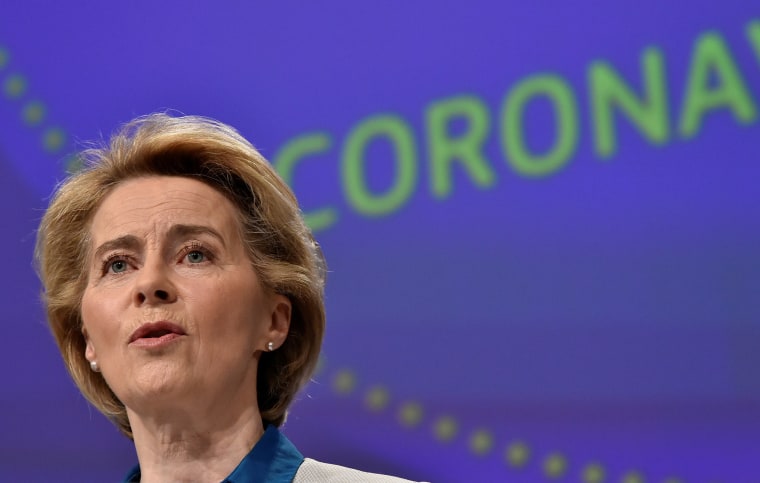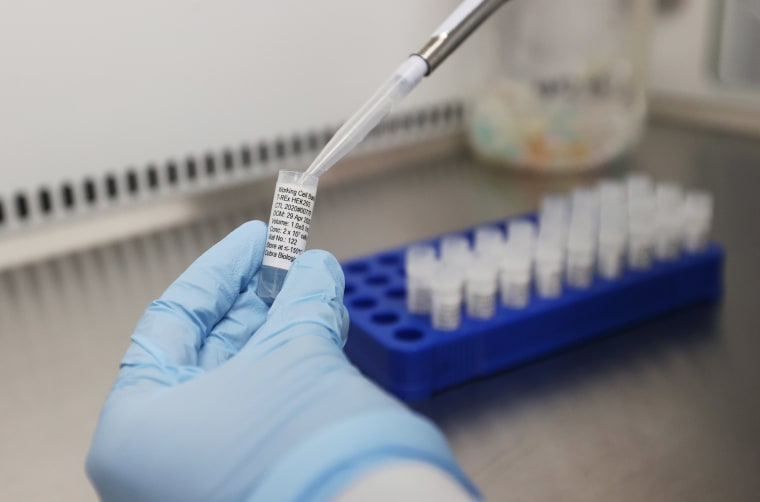An international campaign to find a vaccine for the coronavirus raised $8 billion from governments and organizations on Monday, but the United States was notably absent from the effort.
The European Commission co-led a virtual conference in response to the World Health Organization's appeal for global collaboration in the response to the pandemic, which saw support from leaders across Europe, Japan, Saudi Arabia and Canada.
China, where the virus originated, was only represented by its ambassador to the European Union.
“This will help kick-start unprecedented global cooperation,” said Ursula von der Leyen, head of the European Commission.
A senior Trump administration official told reporters on Monday that while the efforts are welcome, the U.S. has already given significant funding and support to organizations and programs that benefit from the drive.
"It’s one of many pledging efforts that are going on, and the United States is at the lead, really at the forefront of those international efforts with an incredibly robust ramp-up effort that’s begun here in the United States," said the official.
President Donald Trump has been leading regular virtual meetings with G7 leaders and ministers to coordinate the response, the official said. The U.S. is also providing $2.4 billion toward fighting COVID-19 globally through global health, humanitarian and economic efforts.
The Trump administration's absence from the campaign followed an announcement last month to halt funding to the WHO — accounting for roughly 15 percent of the agency's budget — pending a review of the agency's response to the pandemic. The president had accused the WHO of "severely mismanaging and covering up" the coronavirus crisis, specifically the initial outbreak in Wuhan, China.

The move generated significant backlash from world leaders, including from U.N. Secretary-General António Guterres, who said: "Now is a time for unity in the global battle to push the COVID-19 pandemic into reverse, not a time to cut the resources of the World Health Organization, which is spearheading and coordinating the global body's efforts."
The senior administration official said Monday that the U.S. remains a global leader in providing health and humanitarian aid and funding to the WHO accounts for only about two percent of its contributions. They added that in the meantime, the U.S. is looking at other international agencies such as the United Nations Children's Fund to distribute aid.
But world leaders launching the campaign that runs until the end of May said more needs to be done to fight the pandemic while calling for solidarity.
"We cannot isolate ourselves," said Canada's Prime Minister Justin Trudeau during the virtual conference, pledging over $600 million.
Wealthy countries can't be the only ones to benefit from medical advancements, he added. "We need to take care of ourselves... by taking care of the rest of the world."
Britain's Prime Minister Boris Johnson said that while lockdown efforts have taken the pressure off health systems and saved lived — "including my own " — the longterm solution to the pandemic hinges on a vaccine.
“The more we pull together and share our expertise, the faster our scientists will succeed," he said.
Reuters contributed to this report.


